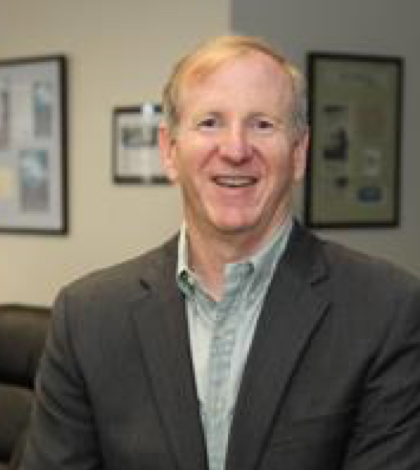So says Mike Stull, an academic and entrepreneur who runs a local academic program devoted to growing and developing entrepreneurship in the two-county region. Now is probably a good time to start a business in the Inland Empire, although there could be some rough patches ahead, according to Stull.
To hear Mike Stull tell it, there’s never a bad time to own a small business.
“Everyone who owns their own business tells me the same thing,” said Stull, director of the Inland Empire Center for Entrepreneurship at Cal State San Bernardino. “They say the worst day they ever had running their own business and making their own decisions is better than the best day they ever had working for somebody else.
“To a degree it’s liberating to make your own decisions and then have to live with the success or failure,” Stull said. “Either way, you’re the one responsible. It’s almost like running a business isn’t a career choice. It’s a calling, at least for a lot of people.”
In 1999, Stull was working for the Inland Empire Economic Partnership when he was named to the advisory committee that got the Center for Entrepreneurship started. Three years later he was offered the directorship, and he’s been there ever since.
The program’s goal is relatively simple: teach undergraduate and graduate students how to be entrepreneurs, starting with their coming up with a workable idea for a business. After that, show them how to get it started and manage it, all the while convincing them they’re up to the task.”
“Sometimes that’s the hardest part about teaching, getting the kids to believe they can do it,’ said Stull, who grew up in Rialto and graduated from Cal State San Bernardino in 1988 with a degree in management. “Confidence is an issue you always have to address, because they don’t have any experience running a business. I tell them it’s not really complicated, you’re just going to have to work incredibly hard if you want to succeed. There’s no way anyone can know how much work is involved in starting a business unless they’ve done it.”
Stull spoke recently with IE Business Daily about the state of small businesses in the Inland Empire, what the Center for Entrepreneurship tries to accomplish and what impact California’s pending $15-an-hour minimum wage law is likely to have on businesses with 50 employees or less.
Q: From an economic point of view, is 2016 a good time to own a small business in the Inland Empire?
A: I would say so, yes. Most of the sectors are doing well, and the economy has clearly improved. I think we’re out of the recession. Some businesses aren’t doing as well as they used to and are probably never coming back to what they were before. Daily newspapers, for example. But on the overall, I would say this is a good time for small businesses.
Q: You ran businesses before you got into academia. Has that helped you educate your students about how to run a business?
A: Yes. In some ways what I do now is a lot like running a business. I make my own decisions, and I don’t have a lot of people telling me what to do.
Q: What made you decide to take the job?
A: I had done about as much as I could do at the IEEP, and I was looking for something new. It was a blank canvas, which made it a big challenge, and I liked that. Also, I would be getting into education, and that seemed like a good fit.
Q: How would you describe the Center for Entrepreneurship? What is its purpose?
A: We educate our students, and we try to be a catalyst for entrepreneurship in the Inland Empire. The main goal is education, not to just start a business. This is something that is being done at colleges and universities all over the country. They have the same kind of program that we do. We’re just trying to keep up.
Q: But the ultimate goal is to get your students to where they can start their own business?
A:Yes, if they’re cut out for it and they decide that’s what they want to do. About 46 percent of our graduates end up starting their own business.
Q: How do you define an entrepreneur, beyond someone who starts their own business?
A: There are a lot of ways to look at it, but I think entrepreneurs take risks. They’re very driven, very self-motivated and they’re perfectionists. They’re never satisfied with anything. Steve Jobs is a good example. He looked at Apple as a way to change the universe. He didn’t look at it as a business, and he didn’t run it that way.
Q: How important are small businesses to the Inland Empire economy?
A: They’re very important. How many Fortune 500 companies do we have here? Some, but not that many. We have a lot young companies that are just getting started and some of them will get bigger. We’re planting seeds. I don’t know how many of them will grow.
Q: Are you encouraged by InTech Center, the training facility that opened in Fontana in March? It’s training people for technical and manufacturing jobs in the Inland Empire, jobs that right now are difficult to fill.
A: I think it’s a very good thing. It’s going to fill a need, which will allow companies here to hire trained, skilled people to fill jobs, people who live in the Inland Empire. We need more places like that.
Q: Gov. Jerry Brown recently signed into law the largest minimum wage increase in the country, $15 a hour, although it won’t reach that point until 2022. Some economists are calling the increase a job killer, especially for smaller businesses. What is your view?
A: I think it’s a large increase if you have two employees or 30 employees. I think most businesses will find a way to stay [open], but there are only so many ways you can absorb an increase that large. Only so many costs can be passed on to the consumer. The cost is going to have to be absorbed somewhere.
 IE Business Daily Business news for the Inland Empire.
IE Business Daily Business news for the Inland Empire.


